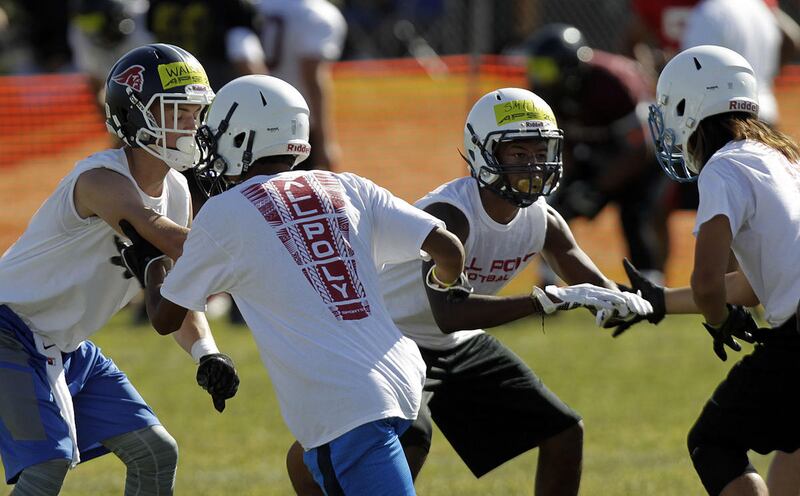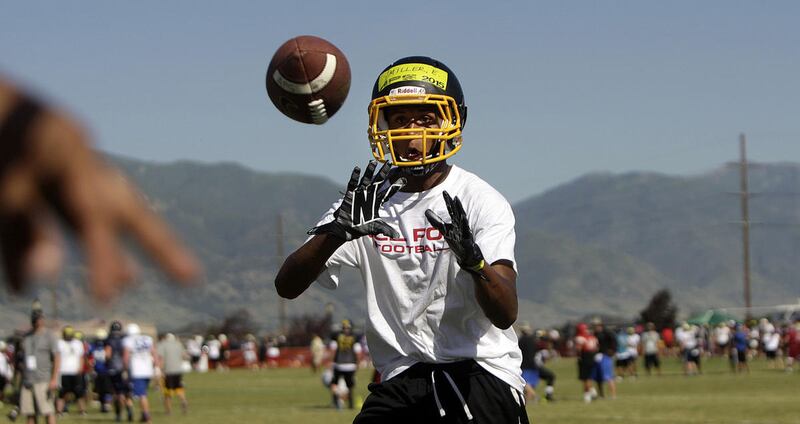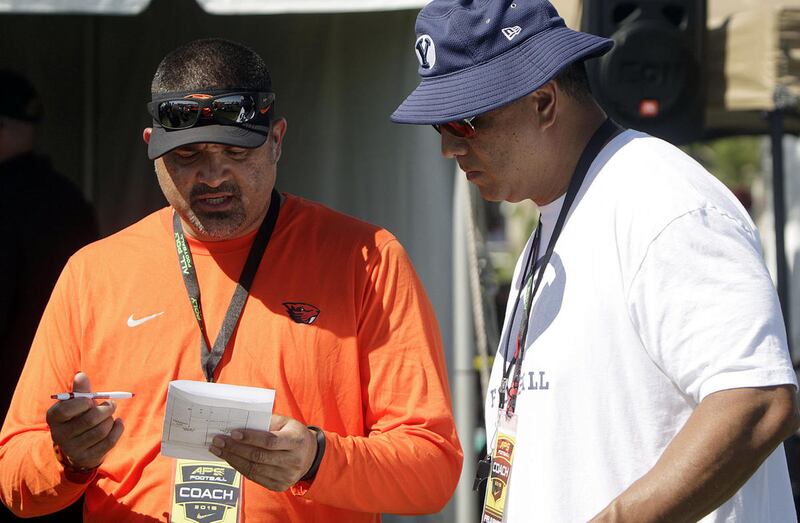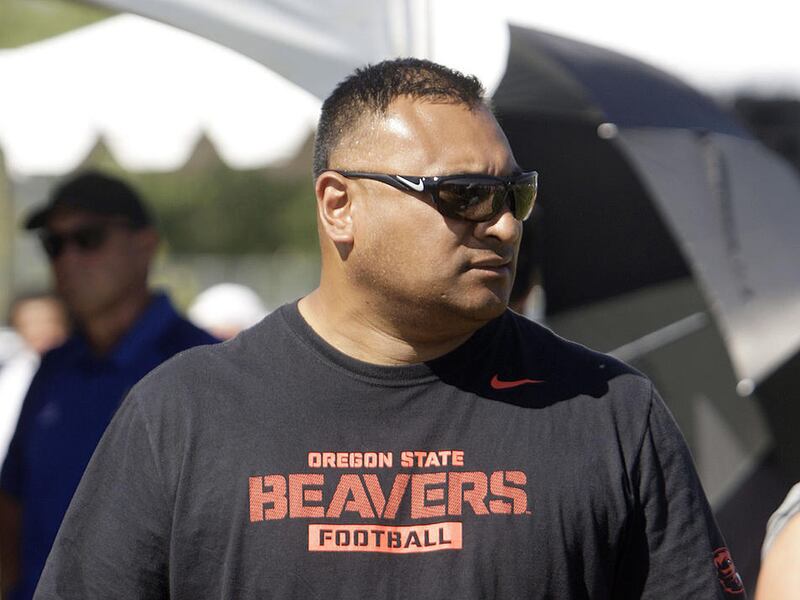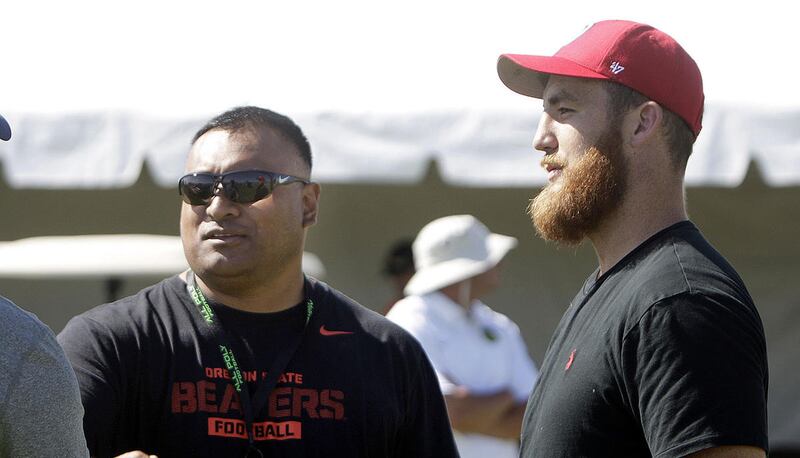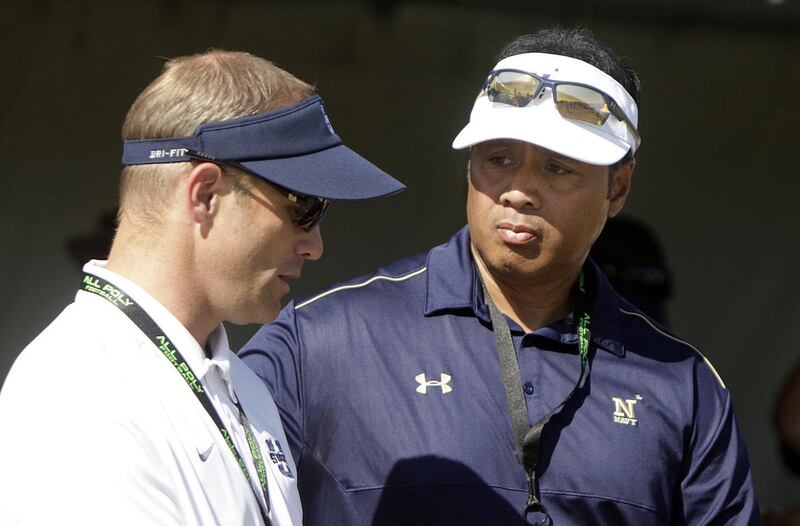I don’t think that’s a good rule. I think that it hurts the kids, the players. It cuts down on the amount of exposure they get, and it’s all about the players. Anything that adversely affects the players, I am against. – Utah coach Kyle Whittingham
SALT LAKE CITY — For more than 15 years, Alema Te’o’s All Poly Camp has offered high school players the chance to meet dozens of college coaches from all levels during a one-weekend football camp.
That will likely change after last week’s decision from the NCAA’s Football Oversight Committee to ban satellite camps for FBS schools (Division I), although appeals for an exemption are already in the works for the June event.
“This has created a lot of problems,” said Te’o, who is also the head football coach at Alta High. “If it stands, it will take something away from the camp, no doubt. … What they don’t realize is that it’s hurting the smaller Division I schools — the New Mexico State’s. … They did not take into consideration the big picture.”
The decision isn’t popular locally, but was a change pushed by ACC and SEC coaches, in large part because Michigan coach Jim Harbaugh was brash and aggressive in holding camps in a number of SEC and ACC cities.
Te’o and other prep coaches said this only became a major controversy when SEC coaches, who aren’t allowed to coach at satellite camps more than 50 miles from their campuses by conference rule, forced the issue.
“Everybody’s naming this the ‘Harbaugh rule,’ and it’s unfortunate,” Te’o said. “It inconveniences thousands of people.”
Not only do people like him have to adjust how their camps operate, but student-athletes who have been planning to attend satellite camps for months, some of whom can’t afford to travel individually to college campuses, now find themselves in a difficult situation.
Te’o said he’s already submitted a proposal to allow the All Poly Camp to be granted an exemption for this June’s camp. He hopes that will at least allow them to honor this year’s commitment.
He has many allies in criticizing the change, especially in how it limits exposure for student-athletes.
“I don’t think that’s a good rule,” said Utah coach Kyle Whittingham. “I think that it hurts the kids, the players. It cuts down on the amount of exposure they get, and it’s all about the players. Anything that adversely affects the players, I am against.”
It isn’t the top-tier athletes who will suffer if the decision stands, Whittingham said.
“Not the high-level guys — the four- and five-star guys, the blue-chip guys, they’re going to have their scholarship offers across the country,” Whittingham said. “But it’s those guys that are maybe a little bit under the radar and not at the forefront that are going to suffer because coaches are not going to be able to travel and come to them and a lot of those guys don’t have the means to make a tour of the country and go to a bunch of camps. It’s just not feasible financially, and so I think it hurts the recruits and therefore I think it’s not a good thing.”
NCAA President Mark Emmert told the Deseret News Thursday during a visit to Utah State that there is no appeal process for the decision. He said the Board of Directors could ask the Football Oversight Committee (made up of athletic directors from 17 schools in various conferences) to reconsider the entire ban or possible changes.
“Then it would just go back to that council and say, ‘You all sure you want to do what you just did?’” Emmert said. “And they may well say, ‘Yup, we’re sure.’ They may say, ‘Let’s talk some more.’ The problem, of course, is one of time. The council only meets six times a year, and their next meeting isn’t for quite a while.”
Emmert said there were a number of things regarding football recruiting that need to be addressed and/or changed.
Timpview offensive coordinator John Teuscher, who has coached at the high school and college level, said it hurts players, but it also hurts smaller schools whose coaches work those camps.
“Another part of this that’s overlooked is that those Division I coaches are the only ones allowed to work the camps at their facilities,” he said. “That means FCS coaches can’t go work OSU (Ohio State University) camps.”
Te’o isn’t so sure the decision is final, and he’s working hard to gain an exemption this year. But if it is the new reality, he said all the camp loses is the big-name coaches. A lot of great coaches and opportunities from FCS schools will still be involved in these camps, he said.
“We had over 120 (coaches) locked in,” he said. “Fifty of those were Division I. It does take sex appeal away from the camp, so to speak. … We’ve taken the approach that we can’t change the course right now. We’re going to go with the coaches who are available to come.”
Email: adonaldson@deseretnews.com
Twitter: adonsports

